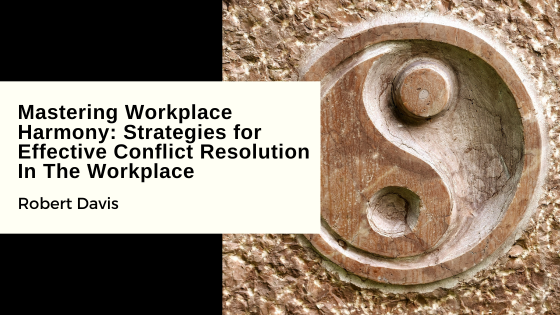In every workplace, conflicts are expected to take place. Whether it’s a disagreement over project direction, clashes in personalities, or tension due to miscommunication, conflicts can disrupt productivity and morale if left unaddressed. However, conflict resolution is a skill that can be learned, leading to healthier work environments and stronger team cohesion. Here are some crucial strategies for effective conflict resolution in the workplace:
- Open Communication: Focusing on encouraging open communication is key to resolving conflicts efficiently. Create a culture where your team feels safe expressing any concerns and opinions without fear of judgment or retaliation. Encourage active listening, where each party listens to the other’s perspective without interruption or assumption.
- Clarify Expectations: Many conflicts arise due to misunderstandings or unmet expectations. Ensure that roles, responsibilities, and project objectives are clearly defined. When everyone understands what is expected of them, it reduces the likelihood of conflicts arising.
- Address Issues Early: Don’t let conflicts simmer and escalate. Address them as soon as they arise to prevent them from becoming larger problems. Encourage employees to voice their concerns when they notice tensions brewing and provide channels for them to do so, such as regular check-ins or anonymous suggestion boxes.
- Seek Common Ground: During conflict resolution, focus on finding common ground, not dwelling on differences. Identify shared goals or interests and use them as a foundation for finding solutions that benefit everyone involved. This approach fosters collaboration and encourages a sense of unity among team members.
- Use Mediation Techniques: In cases where conflicts involve multiple parties or are particularly complex, consider bringing in a neutral mediator to facilitate discussions. Mediators can help defuse tensions, guide conversations toward productive outcomes, and ensure that all voices are heard impartially.
- Practice Empathy: Empathy plays a critical role in resolving conflicts effectively. Encourage employees to put themselves in each other’s shoes and consider the perspectives and feelings of their colleagues. Understanding where the other person is coming from can help de-escalate conflicts and pave the way for mutually beneficial solutions.
- Focus on Solutions, Not Blame: When addressing conflicts, shift the focus from assigning blame to finding solutions. Instead of dwelling on past mistakes or grievances, concentrate on identifying actionable steps that can resolve the issue and prevent it from happening again in the future.
- Follow-Up: After a conflict has been resolved, make sure to follow up with the involved parties to ensure that the agreed-upon solutions are being implemented effectively. Monitoring the situation allows you to address any lingering issues promptly and prevent conflicts from resurfacing.
- Provide Training and Support: Invest in training programs that equip employees with conflict resolution skills. Offer things like workshops, seminars, or online courses that teach effective communication, negotiation, and problem-solving techniques. Additionally, provide ongoing support and resources to help employees navigate conflicts as they arise.
- Lead by Example: As a leader or manager, set the tone for constructive conflict resolution by modeling positive behaviors. Demonstrate patience, empathy, and a willingness to listen during disagreements, and be proactive in addressing conflicts as they arise within your team.
By implementing these strategies, workplaces can cultivate a culture of open communication, empathy, and collaboration, paving the way for more effective conflict resolution and ultimately creating a more productive work environment.
